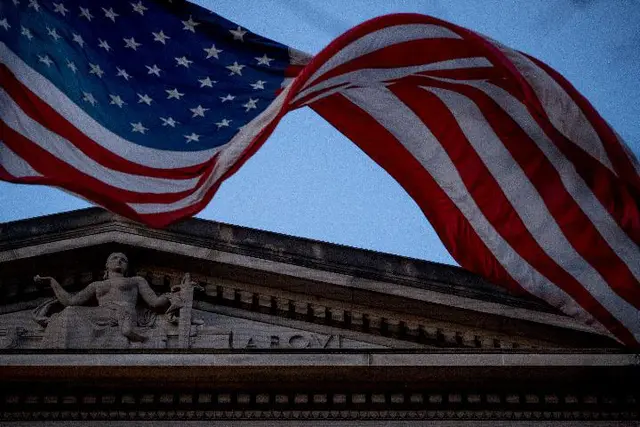Defense ministers, officials and experts from Asia-Pacific countries agreed that regional security threat is on the rise and called for concerted efforts to address rising threats at the 16th Shangri-La Dialogue which concluded on Sunday in Singapore.
“Closer to home, terrorism is our biggest security concern in Southeast Asia," Singaporean Defense Minister Ng Eng Hen said on Sunday, and the regional threat has heightened and is likely to worsen, Xinhua News Agency reported.
Relevant parties at the three-day dialogue called for improving security mechanisms, sharing intelligence and preventing extremists from entering the region to cope with threats to regional security.
Potential return of extremist groups
Participants warned of a potential return of extremist groups, and reiterated cooperation in preventing terrorists from gaining a foothold in the region, as the Philippines and Indonesia have become targets of recent terror attacks.
Last week, ISIL-linked militants attempted to gain control of the southern Philippine city of Marawi, killing soldiers and prompting President Rodrigo Duterte to impose martial law there. ISIL also claimed responsibility for a suicide explosion that killed three policemen at a bus station in Indonesia's capital Jakarta in late May.
Incidents in Malaysia and Thailand also underscored the severity of terrorism in the region. "We know at least 31 terrorists groups in this region have pledged allegiance to ISIL, and there is evidence of increasing transnational cooperation among regional terror groups," said Ng.
Criminals using new attacks
The global WannaCry ransomware cyber-attacks, which disrupted many Asia-Pacific countries last month, with the National University of Singapore and two major Indonesian hospitals having been hit, also took center stage at the security forum.
“A generation of criminals and terrorists is using a new generation of technology, attempting to divide us by exploiting platforms designed to bring us together,” Australian Prime Minister Malcolm Turnbull noted Friday.
Zhu Qichao, a Chinese delegate from the National University of Defense Technology, emphasized the necessity of sharing information among countries and adopting new technologies in multinational anti-terror operations.
DPRK crisis: "diplomacy" not coercive
The crux of the nuclear crisis is Washington and Pyongyang's mistrust to each other, according to the head of Chinese delegation He Lei, vice president of the Academy of Military Science of the Chinese People's Liberation Army. He urged the US to become more open-minded and exert more wisdom in dealing with the DPRK issue.
Pyongyang has recently stepped up its nuclear and missile program, having launched several ballistic missiles over the past few weeks, including a medium-range rocket last Monday which landed in the Sea of Japan.
US Secretary of Defense James Mattis on Saturday pledged to continue to increase diplomatic and economic pressures until Pyongyang finally and permanently abandons its nuclear and ballistic missile programs.
However, in its Asia-Pacific Regional Security Assessment 2017 released on June 2, the International Institute for Strategic Studies said that putting economic pressures on Pyongyang is largely ineffective.
China has always advocated diplomacy to resolve the DPRK crisis. "China has been making active efforts with regard to the issue which also involves China's interests," He Lei said, adding that China will continue to work with other regional countries in seeking a solution to the issue.
China promoting "peaceful coexistence" in the region
During the summit, the Chinese delegation has emphasized that China has called for peaceful coexistence among countries in the Asia-Pacific region.
Both China and Japan agreed that the bilateral air and maritime contact mechanism is an important development, said the top delegates from both countries during a bilateral meeting on the sidelines of the security summit.
The Chinese lieutenant general He Lei said both countries should properly manage their differences so as to push forward the development of bilateral defense relations.
Adding that Beijing is committed to promoting cooperation and avoiding conflict with its neighbors, He said China always values, follows and upholds international rules, citing the Declaration on the Conduct of Parties in the South China Sea and the South China Sea Code of Conduct framework agreement as the right kind of consensus reached between China and Southeast Asian nations. He also called for all participants to be treated equally and be responsible in promoting peace and stability.
The Shangri-La Dialogue, organized by the British think tank International Institute for Strategic Studies, was initiated in 2002.
The 16th Shangri-La Dialogue was held in Singapore this year from June 2-4 attended by senior military officials, diplomats and experts from over 30 countries.
(CGTN)
 简体中文
简体中文

